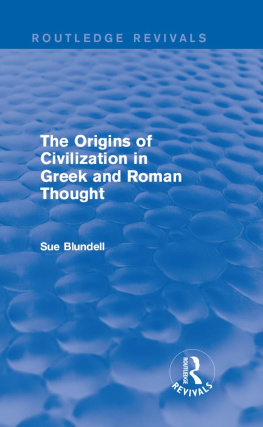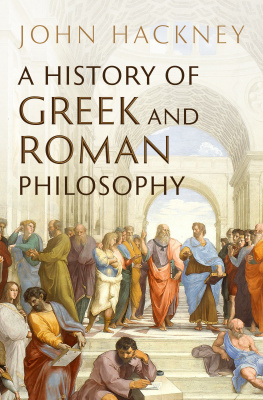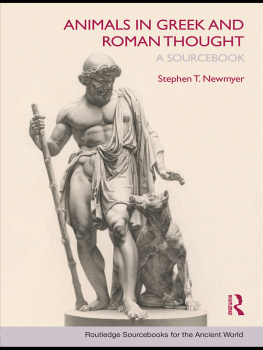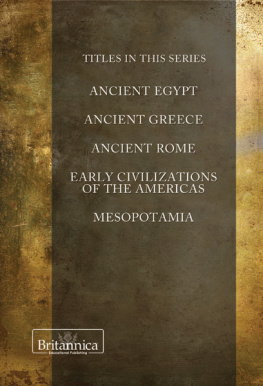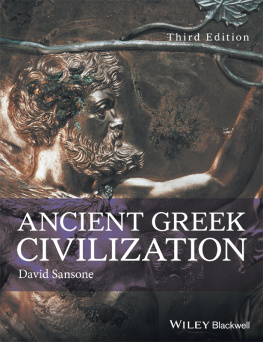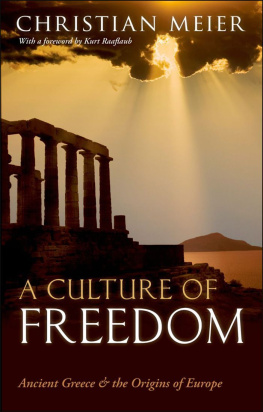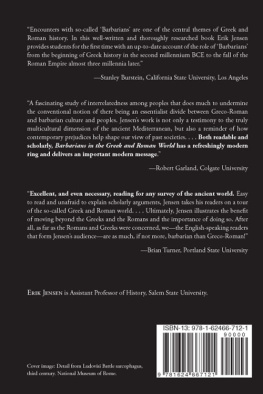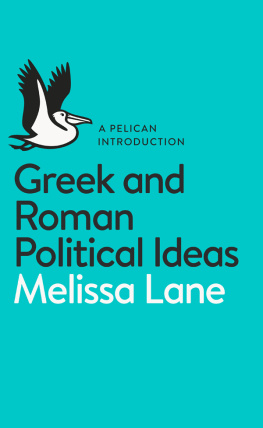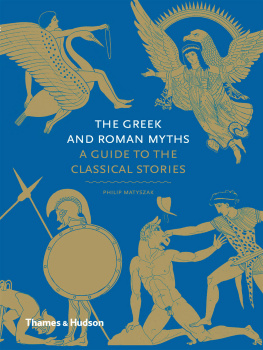Routledge Revivals
The Origins of Civilization in Greek and Roman Thought
The extent to which thinkers in Greek and Roman antiquity adhered to ideas of evolution and progress in human affairs has been much debated. Did they lack any conception of process in time, or did they anticipate Darwinian and Lamarckian hypotheses?
The Origins of Civilization in Greek and Roman Thought, first published in1986, comprehensively examines these issues. Beginning with creation myths Mother Earth and Pandora, the anti-progressive ideas of the Golden Age, and the cyclical theories of Orphism Professor Blundell goes on to explore the origins of scientific speculation among the Pre-Socratics, its development into the teleological science of Aristotle, and the advent of the progressivist views of the Stoics. Attention is also given to the primitivist debate, involving ideas about the noble savage and reflections of such speculation in poetry, and finally the relationship between nature and culture in ancient thought is investigated.
The Origins of Civilization in Greek and Roman Thought
Sue Blundell
First published in 1986
by Croom Helm Ltd
This edition first published in 2014 by Routledge
2 Park Square, Milton Park, Abingdon, Oxon, OX14 4RN
and by Routledge
711 Third Avenue, New York, NY 10017
Routledge is an imprint of the Taylor & Francis Group, an informa business
1986 Sue Blundell
The right of Sue Blundell to be identified as author of this work has been asserted by her in accordance with sections 77 and 78 of the Copyright, Designs and Patents Act 1988.
All rights reserved. No part of this book may be reprinted or reproduced or utilised in any form or by any electronic, mechanical, or other means, now known or hereafter invented, including photocopying and recording, or in any information storage or retrieval system, without permission in writing from the publishers.
Publishers Note
The publisher has gone to great lengths to ensure the quality of this reprint but points out that some imperfections in the original copies may be apparent.
Disclaimer
The publisher has made every effort to trace copyright holders and welcomes correspondence from those they have been unable to contact.
A Library of Congress record exists under LC control number: 85029061
ISBN 13: 978-0-415-74820-9 (hbk)
ISBN 13: 978-1-315-79662-8 (ebk)
ISBN 13: 978-0-415-74821-6 (pbk)
The Origins of Civilization in
GREEK & ROMAN THOUGHT
SUE BLUNDELL
1986 Sue Blundell
Croom Helm Ltd, Provident House, Burrell Row,
Beckenham, Kent BR3 1AT
Croom Helm Australia Pty Ltd, Suite 4, 6th Floor,
64-76 Kippax Street, Surry Hills, NSW 2010, Australia
British Library Cataloguing in Publication Data
Blundell, Sue
The origins of civilization in Greek and Roman thought.
1. Philosophy, Ancient
I. Title
180.938 B505
ISBN 0-7099-3212-X
Croom Helm, 51 Washington Street, Dover,
New Hampshire 03820, USA
Library of Congress Cataloging in Publication Data
Blundell, Sue.
The origins of civilization in Greek and Roman thought.
Bibliography: p.
Includes index.
1. Civilization, classicalphilosophy. 2. Manorigin. I. Title.
DE60.B58 1986 938.001 85-29061
ISBN 0-7099-3212-X
Printed and bound in Great Britain
by Billing & Sons Limited, Worcester.
CONTENTS
The aim of this book is to survey and appraise the very numerous and very various Greek and Roman texts which deal with two related questions: how did the human race come into existence? and how, and at what cost, did it acquire its present cultural status? The subject is indeed a vast one, since there are few writers who do not have something to say on the matter, at least where the second question is concerned; so that I have been forced in the second part of the book to concentrate by and large on those authors who have tried to present an overview of the human races cultural history. There are thus many omissions; but I think that the texts which I have chosen do serve to represent the main patterns of ancient thought on the question of cultural development. I regret very much that these texts could not have been examined in more detail: in particular, I would have liked to look more closely at the authors analyses of various facets of civilisation, such as technology or language. But this would have led me into new and ever-more-complex areas, and it seemed best to confine my attention to the broad evaluations of culture which emerged from their histories. The opinions which people hold about where they have come from and where they are now are at any time a vital element in human consciousness: the conclusions which I have reached about ancient opinions on this subject are necessarily tentative, but I hope thought-provoking.
There are many authors whom I have never met to whom I owe thanks for helping to inspire or to shape this book: of these I would like to mention four in particular. First and foremost, the Roman philosopher Lucretius, whose short history of human civilisation first led me into this absorbing subject. And next A.O. Lovejoy and G. Boas for their exhaustive work Primitivism and related ideas in antiquity ; and W.K.C. Guthrie, for his book In the beginning : both of these encouraged me, while I was writing my doctoral thesis on Lucretius, to explore on my own account the territory which they had so ably mapped out.
Among the people whom I have met, and who have helped me considerably, may I express especial thanks to Paul Godfrey, whose opinions on mythological questions were invaluable; to Joan Stratford, Caroline Heijne and Nick Bailey, who typed the manuscript; to the library staff at the Institute of Classical Studies in London; and above all to Bob Sharples, of University College, London, who read the whole of the manuscript and never complained: he corrected many errors, and is in no way responsible for the ones that remain.
Greek and Roman cosmogonical myths stories which seek to explain the origins of our world through the personages and events of mythology rather than in a direct, empirical way are derived from sources which range in time from the eighth century BC to the fifth century AD. That is not to say that they are numerous, for Greek and Roman mythographers seem more often to have concerned themselves with the problems presented by our environment as it exists now, rather than its possible ancestry. Even less common are the anthropogonical myths the myths which account for the origins of the human race for again it is human life in the here-and-now which is the object of concern. Explanations of human origins often make their appearance in an incidental way, and many problems are encountered when one tries to piece together any kind of consistent picture. Certain trends of thought do, however, emerge and it will be the purpose of this chapter to examine them.
A COMMON LIFE WITH THE GODS
Homer is our earliest source, but from him we derive only the briefest of allusions. In Book 14 of the Iliad , Oceanus, the divine river which encircles the earth, is spoken of as the begetter of the gods (line 201) and is associated in this act of creation with the water-goddess mother Tethys; in a later passage he becomes the begetter of all (line 246). It is perhaps not absolutely necessary to read the human race into the all of the second reference, but later authors certainly made this interpretation (). Another reference, equally brief, is to be found in Book 20 of the Odyssey , where Zeus is reproached for having no pity on men, even though he himself begets them (line 202). Obviously, there is some inconsistency here, but what is most significant about these two allusions is that human beings are seen in both cases as the offspring of the gods. The passage from the Odyssey makes the further point that though they are divine in origin, humans live a life which is not like that of the gods, since it is full of misery and pain.

